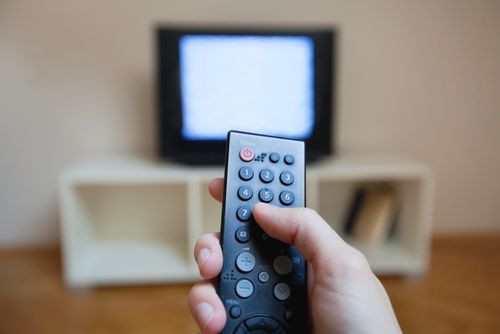The Couch Potato Doesn't Stress: How Indulging In TV May Actually Be An Effective Coping Strategy

Ah, the beauty that is a Netflix binge. There are some people who feel awful afterward. All that time to do, like, productive things. But for those people who don’t, science is on our side.
The Journal of Communication published research from Germany and the Netherlands that found feeling guilty over watching a lot of TV has more to do with a term known as ego depletion than anything else. Ego depletion, as defined by Psychology Today, is “a state in which the self does not have all the resources it has normally.” This mostly means a lack of motivation in regard to self-control, and other social ideals and behaviors.
When researchers surveyed nearly 500 people who watched TV and played a video game just the previous day about their media consumption, those who were more negative and felt guilty were also experiencing ego-depletion. With a negative view of media consumption, the viewer is less likely to draw in its benefits.
Because yes, there are benefits to both — one, as pointed out in this study, is using it to cope with stress. Media function as recovery, in which it allows people to detach from work stress and relax. Essentially, it can be revitalizing. Plus, separate studies have found that people who watched nature scenes (what up, National Geographic?) were more energetic and charitable, and young girls who watched an episode of The OC were more likely to practice safe sex.
"We are beginning to better understand that media use can have beneficial effects for people's well-being, through media-induced recovery,” Dr. Leonard Reinecke, lead study author and an assistant professor at the department of Communication at Johannes Gutenbeg University Mainz in Germany, said in a press release. “Our present study is an important step towards a deeper understanding of this. It demonstrates that in the real life, the relationship between media use and well-being is complicated and that the use of media may conflict with other, less pleasurable but more important duties and goals in everyday life.”
We’d be remiss not to point out the additional (and higher in quanity) science that’s found indulging in too much TV has reverse effects, with some science suggesting it leads to poorer well-being in children and early death in adults.
Though given these newly founded recovery properties, we’re going to rule this in a way Julia Child would: “Everything in moderation, including moderation.”
Source: Reinecke L, Hartmann T, Eden A. “The Guilty Coach Potato: The Role of Ego Depletion in Reducing Recovery Through Media Use.” Journal of Communication. 2014.



























